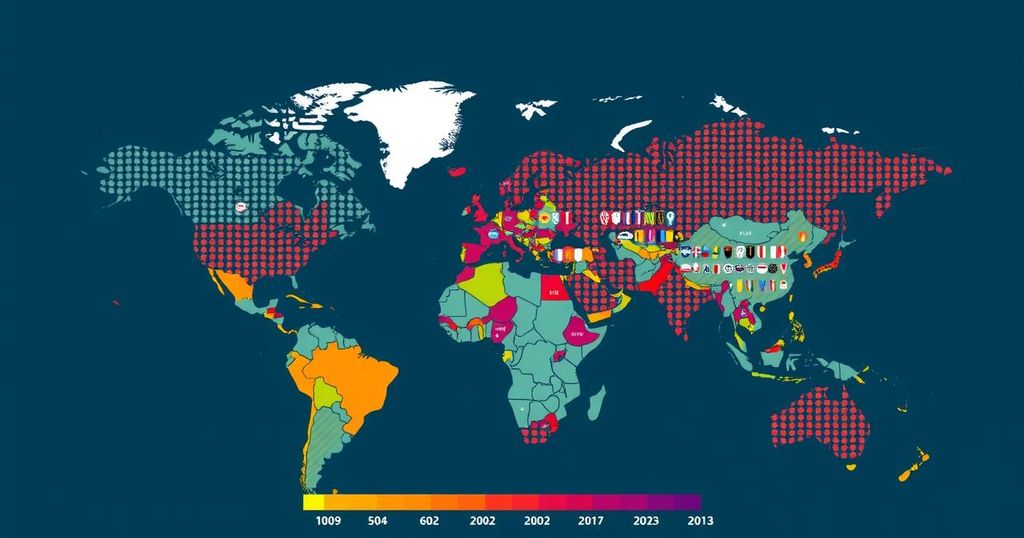The 2024 electoral cycle involved over 1.6 billion voters but revealed significant disconnects between citizens and their leaders, fostering distrust in democratic institutions. Despite minor gains, gender representation remains critically low, with women holding less than 30% of parliamentary seats globally. Successful inclusive initiatives, such as Chile’s constitutional convention, demonstrate the need for ongoing dialogue and reform to achieve true representation in democracy.
The year 2024 marked an unprecedented electoral cycle, involving over 1.6 billion voters across more than 70 countries. Despite this historic engagement, there exists a palpable disconnection between the electorate and political leaders, resulting in escalating skepticism and distrust in democratic institutions, particularly among youth. Critical issues such as climate change, economic inequality, and social injustice have disillusioned many, leading to a substantial questioning of the efficacy of representative democracy.
Gender representation stands out as a glaring indication of this disconnect. Presently, women occupy less than 30% of parliamentary seats globally, and fewer than 30 nations have female leaders. Although improvements have been noted, the rate of progress suggests that complete gender parity remains over a century away. This situation prompts a fundamental reflection: how can a political system genuinely represent all citizens if it disproportionately neglects half of its population?
Chile’s constitutional convention in 2022 serves as a beacon of potential progress, exemplifying how inclusive democratic practices can be established. Women constituted half of the delegates, emphasizing the possibility of true representation. Even though the proposed constitutional amendments were ultimately rejected, the process illustrated the importance of ongoing democratic dialogue beyond mere electoral contests.
It is essential for leaders to ensure that their institutions mirror the societies they serve. Equally, citizens need to actively perceive themselves as stewards of democratic ideals, recognizing that democracy involves more than periodic voting; it demands continuous participation and vigilance. Initiatives such as “Thank You Democracy” by the Global Democracy Coalition play an integral role in celebrating democratic achievements, including achievements in gender rights and equality, which must not be forgotten.
In conclusion, this election year has imparted vital lessons on the urgent need for reform and rejuvenation within democratic structures. As society grapples with various challenges, a commitment to engage citizens in meaningful discourse and ensure inclusive representation will be pivotal in safeguarding and advancing democracy for future generations.
With a collective responsibility, we must advocate for a democracy that respects all voices, acknowledging that despite its imperfections, democracy remains the cornerstone of societal progress and peace.
Democracy is committed to actively involving citizens in political processes. Nevertheless, various factors, such as socioeconomic challenges, have led to increasing disillusionment among populations, particularly the youth. The ongoing discourse around representation highlights significant disparities, notably gender representation, necessitating comprehensive discussion and action to revitalize democratic engagement and trust.
This year’s extensive electoral activities have exposed critical shortcomings in democratic representation and the increasing sense of disenchantment among citizens, especially youth. The stark reality of underrepresentation, particularly concerning gender, underscores the urgent need for reforms that truly reflect societal diversity. By promoting inclusive practices and fostering continuous dialogue, there exists an opportunity to reinvigorate democracy, ensuring it serves all individuals equitably.
Original Source: www.theguardian.com






